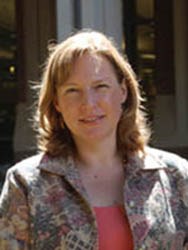非常抱歉,
你要访问的页面不存在,
非常抱歉,
你要访问的页面不存在,
非常抱歉,
你要访问的页面不存在,
验证码:

职称:Associate Professor of Biochemistry and Biophysics
所属学校:University of North Carolina at Chapel Hill
所属院系:Department of Biochemistry and Biophysics
所属专业:Biochemistry
联系方式:919-843-3867
Our lab studies the regulation of the mammalian cell cycle with a particular focus on the cell cycle phase transitions related to DNA replication and to cell cycle exit. Cells coordinate progression through the cell division cycle with a wide variety of extracellular and intracellular information by regulating the activity and abundance of key cell cycle proteins. Many proteins have more than one function in the cell cycle, and one of our goals is to understand how those different functions are integrated to preserve normal cell proliferation. We manipulate cell cycle proteins in human cell lines using a variety of molecular genetic tools. We deplete proteins from cells using siRNA techniques, overproduce proteins using recombinant plasmid or viral vectors, and inhibit activities with pharmacological reagents. New projects employ live cell imaging and single cell analysis of protein abundance during the cell cycle. Ultimately we hope to achieve a greater understanding of normal cell cycle control so that future therapeutic tools related to regeneration and cancer treatment can be developed.
Our lab studies the regulation of the mammalian cell cycle with a particular focus on the cell cycle phase transitions related to DNA replication and to cell cycle exit. Cells coordinate progression through the cell division cycle with a wide variety of extracellular and intracellular information by regulating the activity and abundance of key cell cycle proteins. Many proteins have more than one function in the cell cycle, and one of our goals is to understand how those different functions are integrated to preserve normal cell proliferation. We manipulate cell cycle proteins in human cell lines using a variety of molecular genetic tools. We deplete proteins from cells using siRNA techniques, overproduce proteins using recombinant plasmid or viral vectors, and inhibit activities with pharmacological reagents. New projects employ live cell imaging and single cell analysis of protein abundance during the cell cycle. Ultimately we hope to achieve a greater understanding of normal cell cycle control so that future therapeutic tools related to regeneration and cancer treatment can be developed.